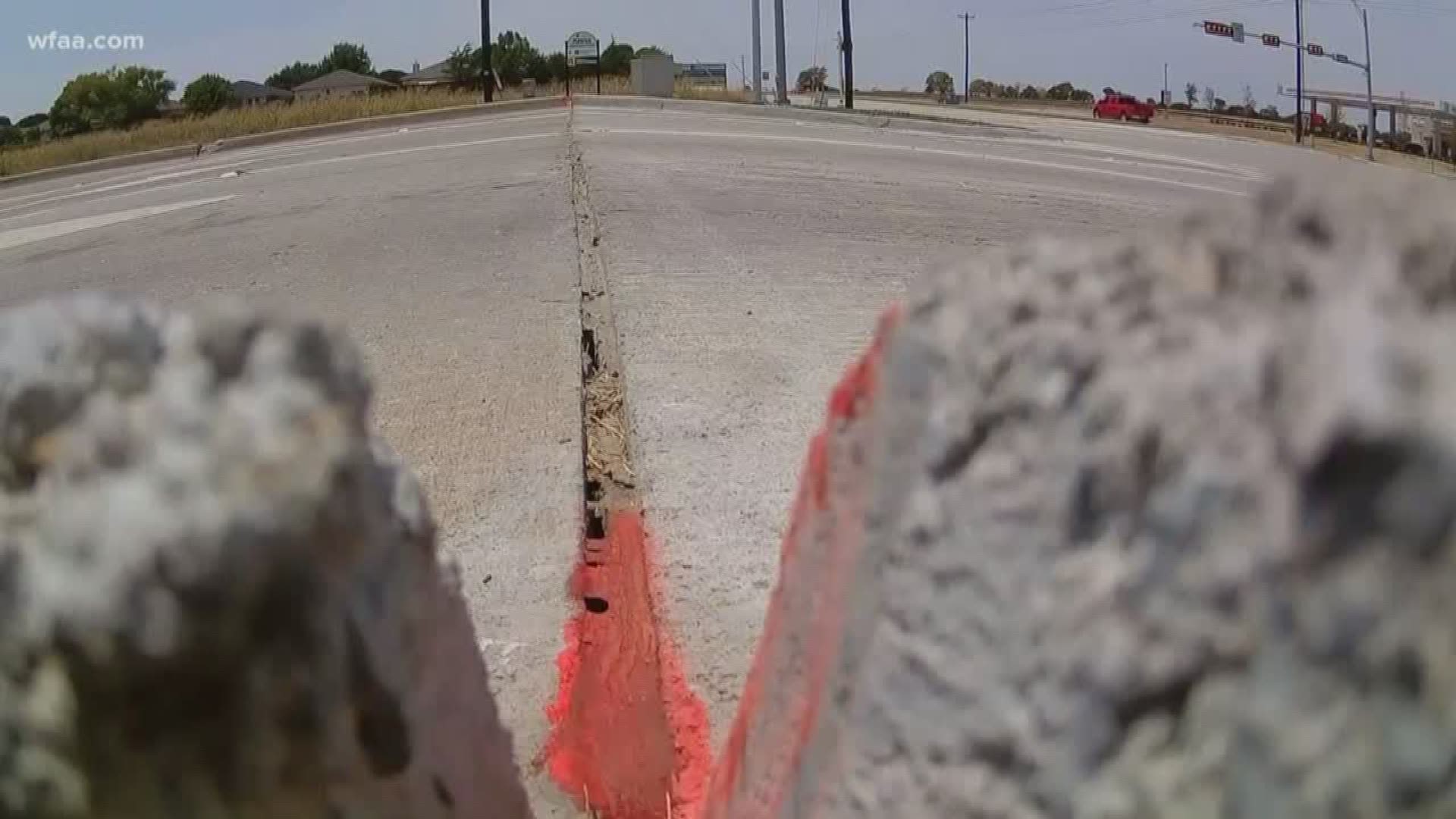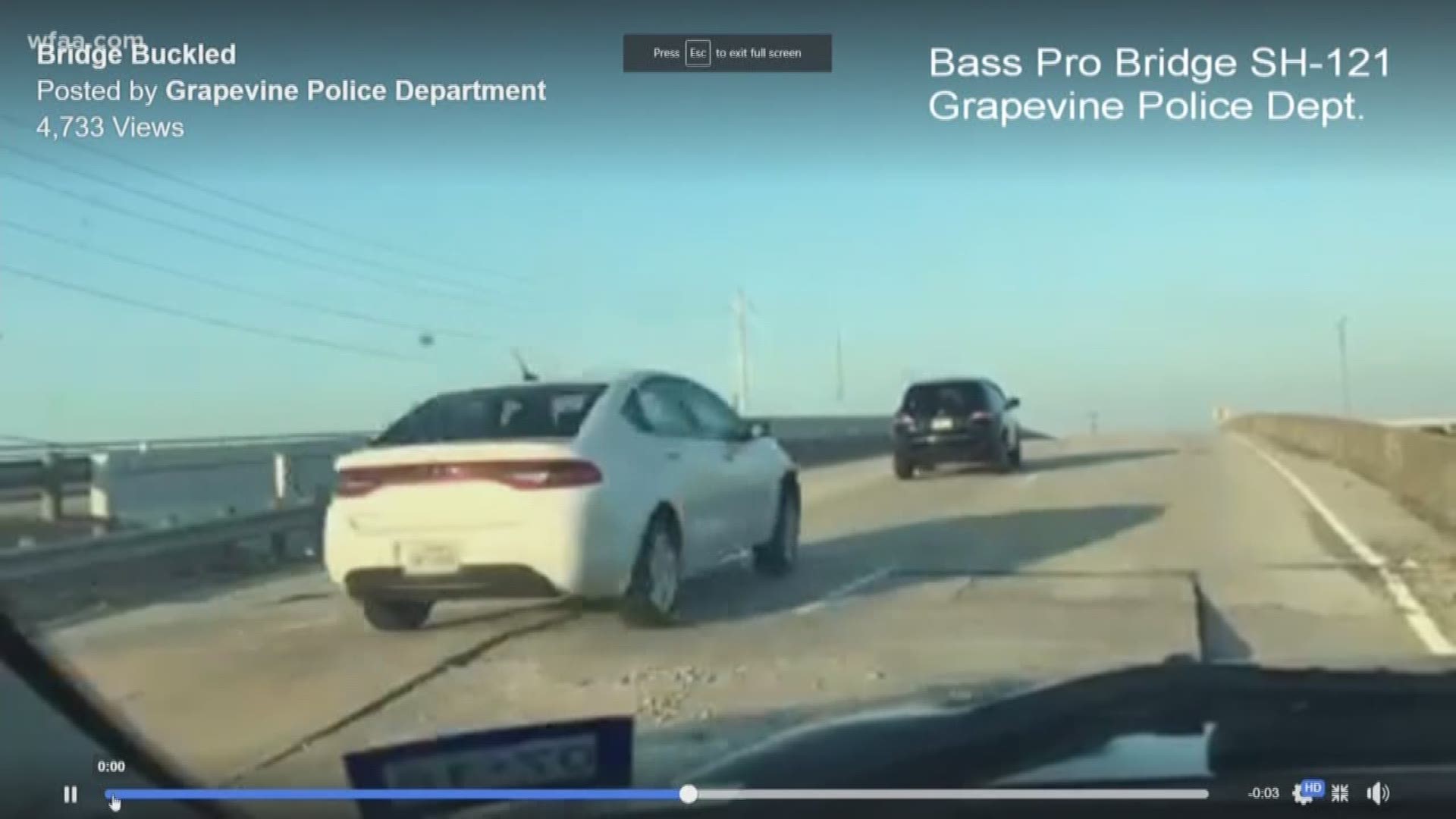The Texas heat can bake cookies and grill hot dogs on your dashboard. It can melt crayons and wax hands.
Still, it's jarring to see what the scorching temperatures did to a road in Collin County over the weekend.
In Anna, the 109-degree weather buckled South Ferguson Parkway. And when we say buckled, we don't mean just a little crack. The road folded up like a small tent, enough so that a WFAA camera fit under the opening in the concrete.
We've seen this happen before. In May, it was the heat that likely caused a bridge to buckle on Bass Pro Drive in Grapevine. Last summer, a road in the Kingsridge Neighborhood in Plano buckled under the relentless July sun.
So we've come to expect a road or two to buckle in the heat – but what causes it?
To put it simply, concrete expands in the heat, and when the concrete has nowhere to go, it buckles. The scientific explanation is something called thermal expansion, when heat causes concrete and other materials to expand.
As this article from the Penn State University website explains, most materials expand in the heat and contract in the cold.
If concrete expands in the heat, why does buckling only happen every once in a while?
Various factors are play here, such as the concrete's age, but the biggest factor in whether concrete will expand – or how much it will expand – is the material it's made of, or the aggregate. The aggregate type can vary from materials like shale, limestone or gravel, according to the Penn State article.
When it comes to roads specifically, the Minnesota Department of Transportation – which surely isn't faced with temperatures as extreme as those here in Texas – offered some insight on its website.
Roads are cut into segments, allowing space for concrete expansion and contraction, the agency explained. But sometimes, there's not enough space and the road buckles. And sometimes drivers don't always slow down in time, and this happens:


